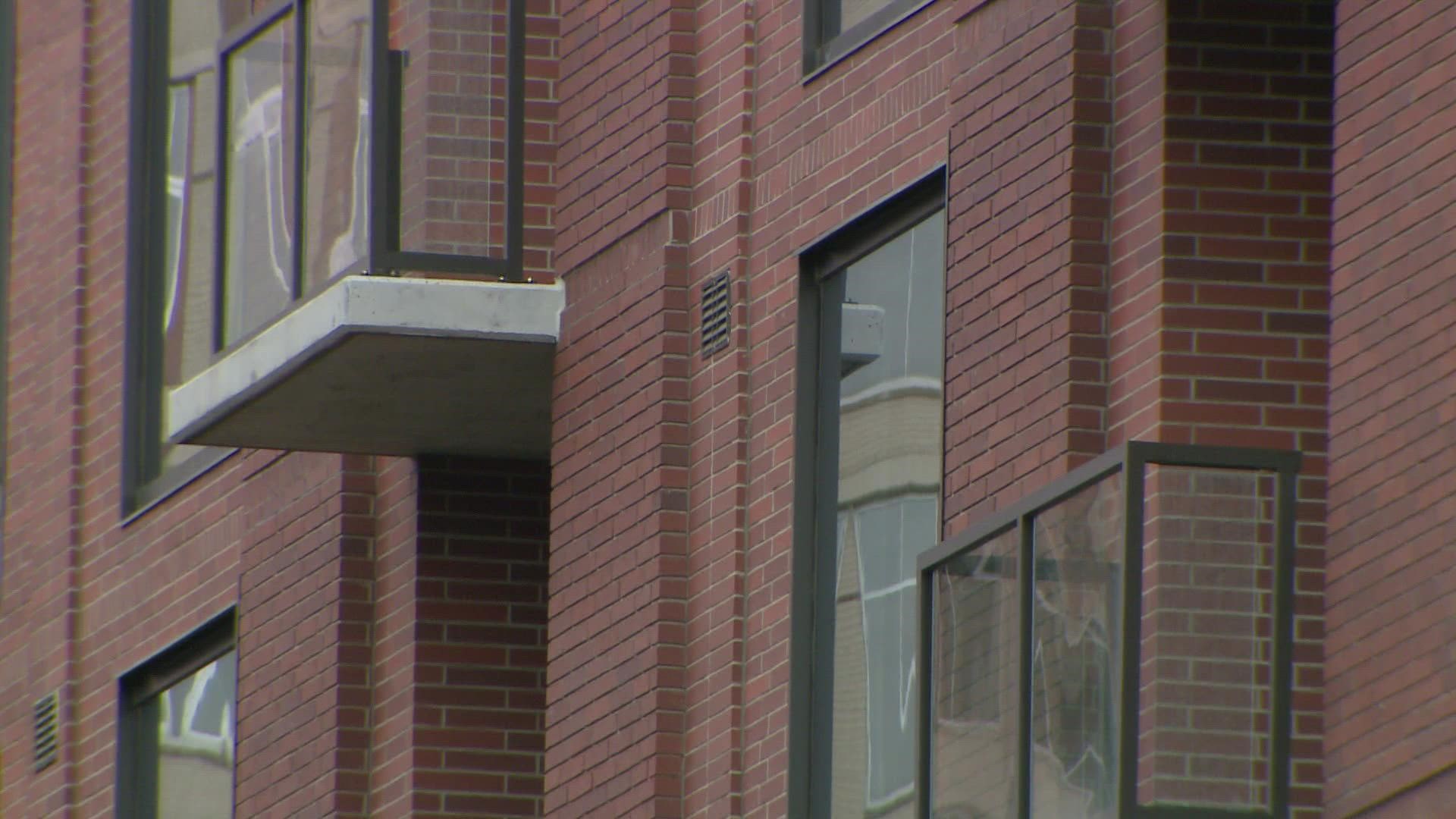DENVER — Starting in January, every multi-family residential rental property in Denver will require a city license to operate.
But about three weeks before that deadline, the city said it granted less than 1,000 of those multi-family property licenses.
Denver’s City Council passed a new ordinance in 2021 creating the residential rental property license program.
“There are a lot of intentions with this law and they’re all good,” said Eric Escudero, spokesman for Denver’s Department of Excise and License, which is implementing the program and approving licenses.
“When you think about people who spend thousands of dollars, and they have black mold, they have a bad heater, they have problems with their running water… Just minimal requirements to live someplace, that is what this license is hoping to achieve. That all landlords will have minimum standards and they’ll have an inspection and get a license once every four years.”
Escudero said 820 multi-family property licenses have been issued by the city so far, with another 220 applications pending. It's just a fraction of the city’s best estimate of the total number of multi-unit rental properties in Denver: 25,000.
Escudero said that estimate comes from the city council’s estimate as they were debating the ordinance last year.
“Every time there’s a brand new license requirement, we know not everyone’s going to get licensed right away. It's going to take some time,” he said. “We had something similar when we started licensing short-term rentals, Air BnBs, years ago. In the first year, we only had about 30% of people supposed to be licensed [actually] had one. Now we're up to 80% for short-term rental licenses, among the highest in the nation.”
Property owners operating a single-family rental property have an extra year - until Jan. 1, 2024, to get licensed. Escudero said 438 single-family rental properties have been licensed so far, with 67 applications pending.
Licensed properties have to pass an inspection and submit that documentation as part of the application. While the number of approved licenses remains low, inspection companies said they have been slammed with business.
“Since about September, we’ve done about 1,700 rental compliance inspections, which is a combo of the initial inspection and re-inspections,” said Neil Chini, of Axium Inspections. “The vast majority of inspections we’ve done thus far have been for multi-family units. We have done a number of single families, but a lot of those property owners seem to be putting that expense off until they’re forced to do it – meaning in 2023 for the 2024 deadline.”
“Back in October we were booking a month and a half out, so we’ve been busy basically all year,” said Chris Scott, of Scott Home Inspection. “We’ve definitely done in the thousands of properties. A lot of those are huge buildings.”
So if inspectors are so busy, why have so few licenses been approved?
The city said they aren’t backlogged on processing applications yet, but there has been a surge in new applications in recent months. Escudero guessed a lot of people are just learning about the program or procrastinating.
Inspection companies said a lot of clients are struggling to hire contractors to make timely repairs after inspection. There have also been questions about the city’s estimated number of residential rental properties – suggesting the city has overestimated the number of properties that need a license in the first place.
“We’re going to find out how accurate that [25,000] number is moving forward,” Escudero said. “That’s one of the great things about this license. Because really there’s no accurate way for the city of Denver to track how many properties there are in the city.”
Chini, of Axium Inspections, said the clients hiring his company for inspections have shared frustrations about the new rules, while also understanding the intent.
“Those approaching us don’t seem to be thrilled about an additional expense about getting an inspection and then a subsequent license,” he said. “There does seem to be recognition there’s a good amount of value behind program for creating a safe living environment for people in Denver.”
Come Jan. 1, landlords who are not compliant could face escalating fines and citations from the city. Escudero said the city doesn’t want to use those methods to enforce, and will first attempt a conversation and a gentle “push” to encourage landlords to get compliant.
Escudero explained the enforcement process by email:
"Denver has a vendor that scans the internet looking for residential rental listings and compares that list to our list of licensed properties. When an unlicensed property is identified, it is sent to our enforcement team for further investigation. If it is determined the property is operating without a license, the landlord is notified they are operating illegally and need to get licensed. If the landlord refuses to get licensed after a warning, they a citation is issued for $150. If they still do not comply, a $500 fine is issued. If they still do not comply, a $999 fine and citation is issued, and all future fines and citations are $999. The goal is to get people in compliance and not have to issue citations and fines. Denver looks at fines and citations as a last resort because a landlord refuses to comply.
We also will discover unlicensed rentals when the Denver Department of Public Health and Environment investigates complaints about problem properties."
SUGGESTED VIDEOS: Latest from 9NEWS

